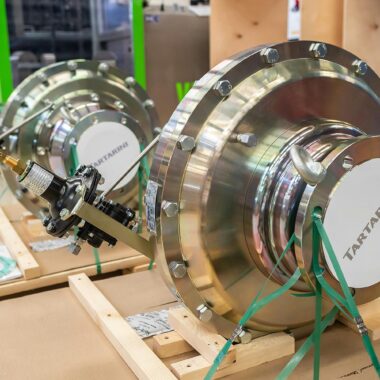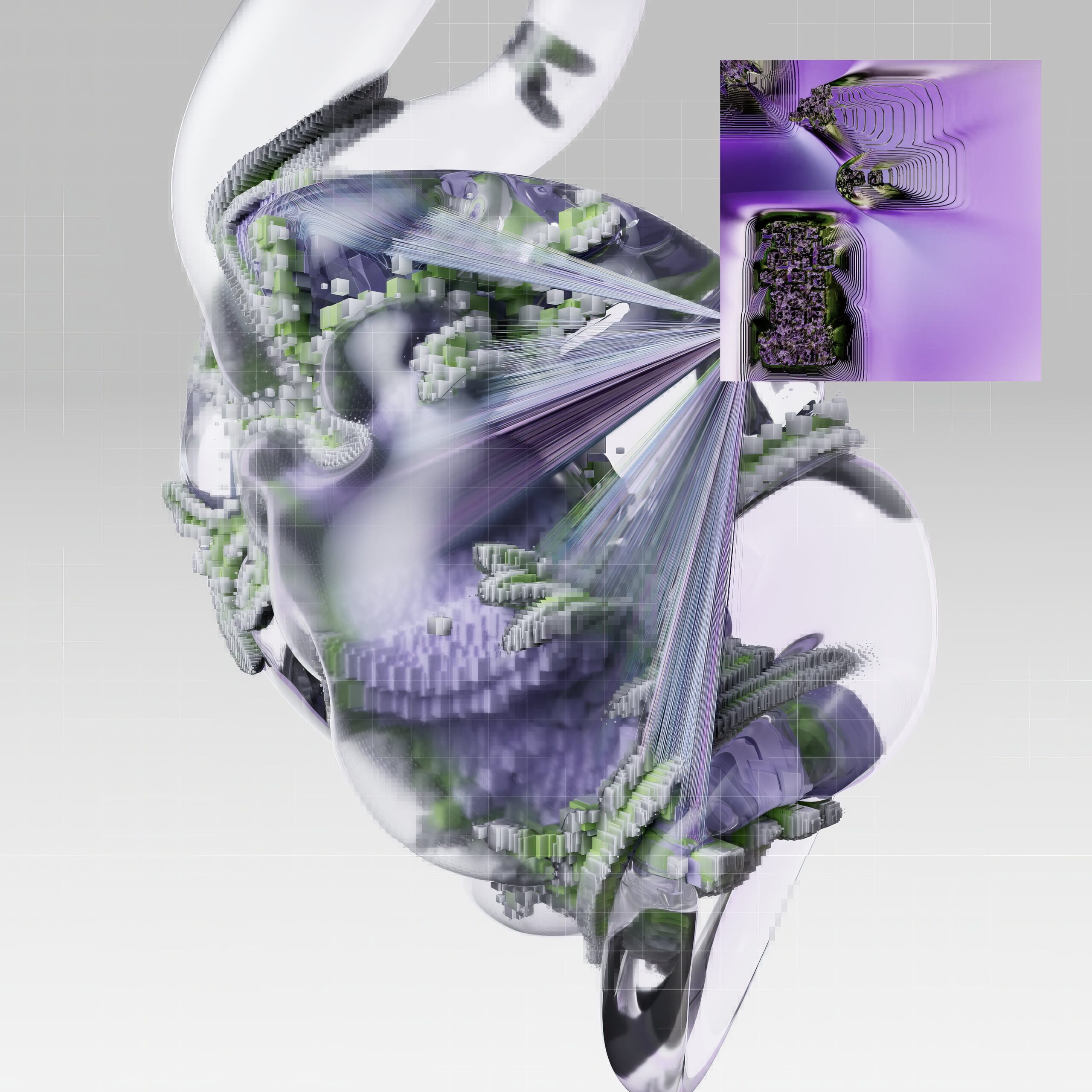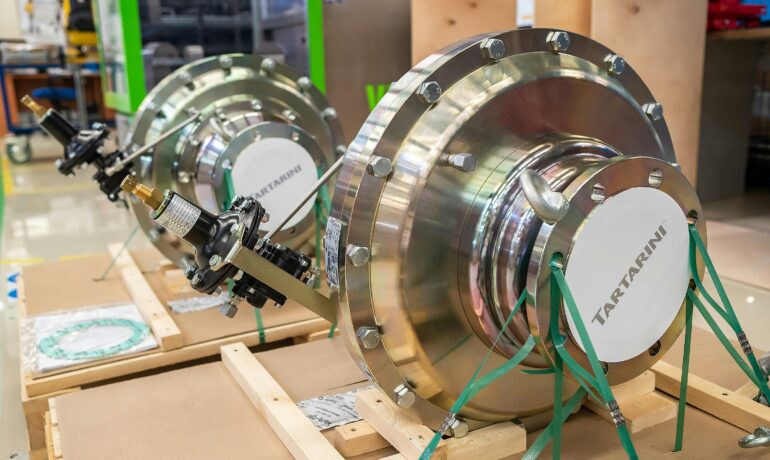Saturday, 23 April 2022
Shri Venkat Raj, Founder of Indo-European Synchronization and President of the European Center for Mechatronics, Germany, and one of SITARA’s youngest members, has devised a privately funded high-intensity training module for equipping Indian students with advanced German engineering skills in Robotics and Aerospace. His programs, involving training at German enterprises, have laid the foundations for upskilling Indian students in cutting-edge German technologies and opened up a bright future for India’s talented and hard-working youth.
One of the main complaints of foreign and Indian companies is finding skilled engineers with hands-on expertise in India.
Venkat’s programs have equipped them to aspire for high-tech jobs in Indian and German enterprises like Mercedes, Bosch, Audi etc.

















Recently SITARA had asked Shri Parag Naik, Co-Founder Saankhya Labs, what was the biggest impediment in the way of India manufacturing semiconductors. Apart from known hurdles, his answer was unequivocal: lack of skilled personnel. Countries like the USA, Taiwan, South Korea, Japan and China were in a race to attract skilled engineers in semiconductor manufacturing and design. Already, half the engineers in US semiconductor design companies are Indian. Table 8 in a CSET study on Chipmakers shows that nearly 50% of the American semiconductor design engineering force is of Indian origin. The IP they generate is worth 10s of billions of dollars annually. Imagine what benefits India could achieve if it cultivates an ecosystem for encouraging high-tech entrepreneurship.

Hence, Shri Venkat’s work is critical for SITARA and national efforts to build a high-tech economy. Even though he studied in Telugu at a local engineering college, he secured admission in a Master’s program in Aerospace in a German University – RWTH in Aachen. But his heart was in India. At the age of 26, while interviewing for a job, he told his German interviewers that he would join only if they expanded their engineering services to other parts of the world, especially to India, and he would not even take a salary except for remuneration for any success achieved under his initiative. That is how Indo-European Synchronization began.
At the time, he was unaware that the Government of India was also going to launch the Skill India Program. While their objectives coincided, his focus on Tier 2 and Tier 3 colleges was unique – bringing cutting edge German education and technologies to the grassroots in India. His company initiated 2 programs in UP, the Northeast, MP, West Bengal and Andhra: i) a summer school program for engineering students who would otherwise never be exposed to international engineering standards and practices; and ii) establishing Centres of Excellence for Indian Faculty.
The topics he chose initially were Industry 4.0 and Robotics. His program achieved immediate success. Around 500 students signed up for the first Indo-German summer schools (Autosol), and 100 Faculty members flew down for training. Today they have trained over 5000 students. Today, around 50 decision makers from Indian institutions have consulted them to establish 30 Applied Robotic Control (ARCs) laboratories and industrial consulting in India. Private and government universities participated. German companies gave high-tech subsidized equipment for training centres in India under their own CSR programs. Every State was touched by this program, with no funding from government.
He says his good work was heard by Smita Purushottam, then Ambassador in Switzerland who enabled him to make a presentation to the Andhra Government at the WEF for the 1st time. The State Government invited them to visit and he devised a project which was supported by the Federal Education and Research Ministry of Germany to give funding for visits to different States. The State Government also agreed to train 10,000 students in AP. Shri Amit Telang, Consul General, CGI, Frankfurt, has extended tremendous support for his programs by arranging the 1st German Indian Higher Education Dialogue 2021.
Vision
Venkat’s vision is to create new higher education clusters in e-Mobility and Sustainability, Artificial Intelligence, IoT and Industrial IoT. New programs will be designed up to Masters level including virtual courses/ dual degrees with employment linkages – students will be employed before admission to a Master’s program and will work/ study as per the German dual education system – customized for Indian requirements. The list of partner private and public universities from India and Germany is impressive.
The goal is to impact one million students and invite 100 plus universities from India and Germany to participate.
Raj also wants to acquire one German University to anchor all these programs in India and create satellite campuses affiliated to German Universities in India. State Governments will need to give land and Indo-European Synchronisation will build the infrastructure. The focus is on technology and orienting students to be employable in Indian and foreign high-tech enterprises in India.
Significance of Venkat’s efforts
We have wrestled with trying to popularise skilling programs along German/ Swiss models in India for years. For example, there was tremendous enthusiasm among Swiss partners for sharing their know-how in vocational education. Foreign companies in India also found it hard to fulfill their requirements for young talent with actual experience of working with machines (although many run their own skilling programs), something the vocational education models of Germany/ Switzerland impart.
In Switzerland, which owes its proficiency in advanced precision manufacturing and Number 1 spot in Innovation – to its vocational education system (as also recognised by its then President/ Federal Councillor Johann N. Schneider Ammann) – two meaningful interactions were organised by the Embassy, one at the world-renowned IMD, Lausanne attended by Switzerland’s top CEOs, together with the help of Prof Charles Dhanraj, and another in Berne, with the participation of more than 20 representatives of Swiss skilling organisations. The latter was addressed by Shri V.K. Saraswat, Member, Niti Aayog, after the Secretary in the Ministry cancelled his visit at the last moment. The Embassy also facilitated the work of the Bharatiya Skills Development University in Rajasthan, built with a philanthropic donation by a Swiss NRI.
But despite strenuous efforts, these did not result in concrete collaborations, as the skilling ecosystem in India was unresponsive, which make Shri Venkat Raj’s achievements stand out. His is a wonderful story of a breakthrough at grassroots level, of an engineer who received his education in the vernacular and made it to the top, but never forgot the aspirations of his fellow students. And he has achieved this entirely alone through sheer perseverance and lots of out of the box thinking!
His example should inspire students in remote parts of India to upgrade their skills and build a bright future. He is recognised as a subject matter expert by Skill Councils and is currently designing the curriculum for IIT Patna and other Indian Universities. We at SITARA wish him all success and hope his efforts will be recognised by the two countries and more encouragement will be provided by the Central and State Governments of India.
Some of the participating Universities:
Germany: APS ITA RWTH Aachen University, MASKOR FH Aachen University, Reutlingen University of Applied Sciences, Kempten University of Applied Sciences, Pforzheim of University of Applied Sciences (more…)
India: VIT AP; Lovely Professional University; Chitkara University; Techno India University; Institutions affiliated to AKTU University, UP; Andhra University AP; Jawaharlal Nehru Technical Universities, AP including rural institutions based in Assam, Chhattisgarh, Tamil Nadu and Madhya Pradesh.









More Stories
Win-Win Solution for the Farmers’ Agitation
iSPIRT and SITARA’s proposal for a Sovereign Compute Stack
Joint Inputs for draft Deep Tech Policy